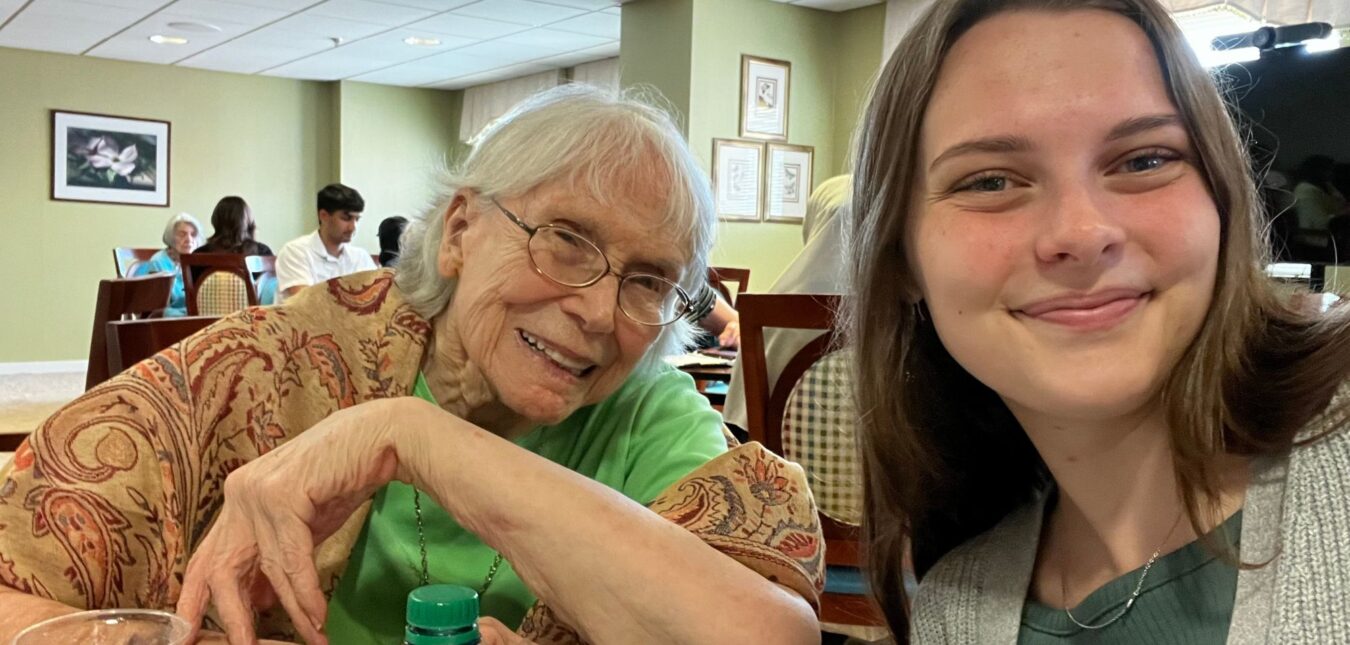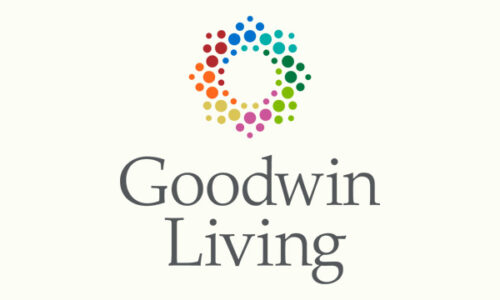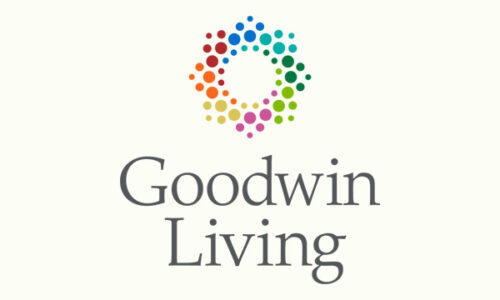Supporting Residents with Parkinson’s Disease at Goodwin Living
By Keara Kierstead
Editor’s Note: This article includes information about Mrs. Gay Hammerman, a resident of Goodwin House Bailey’s Crossroads. Mrs. Hammerman contributed to, reviewed and approved this article with the goal of helping other older adults with a Parkinson’s diagnosis better understand supports and treatments that can allow them to live active and fulfilling lives in spite of the diagnosis.
The National Institute of Neurological Disorders and Stroke (NINDS) estimates Parkinson’s disease to be the second most common neurological disorder (after Alzheimer’s disease) among older adults in the United States, with around 500,000 confirmed diagnoses. Considering the number of cases that go undiagnosed or misdiagnosed, the NINDS estimates the true number of cases may be close to double that number, which would make it nearly one million.
As the population of older adults in the United States grows, diagnosed cases are expected to increase to approximately 1.2 million by 2030. As the condition is so prevalent, senior living and healthcare organizations should lean in to support older adults living with Parkinson’s disease with therapeutic services and community connections.
And lean in is exactly what Goodwin Living does to best support those with Parkinson’s and their loved ones.
Through my summer internship at one of the Goodwin Living Life Plan Communities, I learned just how much Goodwin Living supports residents with Parkinson’s disease. The insights I gained came from resident mentor, Mrs. Gay Hammerman. A resident of Goodwin House Bailey’s Crossroads (GHBC) since 2007, Mrs. Hammerman has been living with Parkinson’s disease for nearly 17 years. As we got to know one another, she shared all that Goodwin Living has done to support her in living as actively and independently as possible throughout her time at GHBC.
Meet GHBC Resident Gay Hammerman
Gay Hammerman first joined the Goodwin Living community at Goodwin House Bailey’s Crossroads in 2007 at the age of 81, following the lead of some family friends who were already residents. “I was visiting a friend who lived at GHBC, and she described it as ‘its own little United Nations’,” Gay shared. “The team members here come from so many different countries of origin and different cultures that you get to meet people from all over the world!”
As a former ESL (English as a second language) tutor, she loved the idea of being part of such a diverse community. “I knew I wanted to meet new and different kinds of people because that’s what adds to the richness of life,” Gay said. “My husband and I saw we could do that here. We did not even consider another place to take care of us after that conversation, and I have no regrets.”
When I first met Gay in 2024, she had been a resident of GHBC for 17 years. I asked Gay why she had stuck with Goodwin Living for nearly two decades and she responded, “I love the fact that Goodwin Living supports us in our health and our daily lives, but I also like that I have space to do what I want to do.” Having made the transition to Assisted Living after realizing she needed more support, she shared, “I still feel independent and happy.”
Gay is consistently astounded by the community the team members and the residents have built at Goodwin Living. “Everyone is just wonderful. I adore the services and the activities they provide for us, but I believe the people are the true source of never-ending delight here.”
Getting a Parkinson’s Diagnosis
Gay first began noticing symptoms of her Parkinson’s disease shortly after moving to GHBC. She had started experiencing a long-term, uncontrollable tremor in one of her hands. To be proactive, she visited a neurologist, though it was several years before she would receive a diagnosis.
Diagnosing Parkinson’s disease is not always straightforward. There is no specific blood or lab test to confirm the disease. Diagnosis protocols today entail a full analysis of medical and family history, reported symptoms and potential other diagnoses. In some cases, the patient is treated with a Parkinson’s-targeted medication. If responsive to the medication, the physician confirms the diagnosis.
Gay was finally diagnosed in 2011 after experiencing symptoms for more than two years. WIth support from her doctors and Goodwin Living, Gay says she has learned how to manage her condition.
Movement Therapy at Goodwin Living
Considering the significant impact of Parkinson’s disease on the stability and strength of muscles, it can be incredibly difficult for those with the disease to maintain a high quality of life and to find the proper levels of both clinical and social support. According to Gay, however, the community at Goodwin Living does an exceptional job at providing her the proper symptomatic support, while ensuring her therapy sessions are as lively and comfortable as possible.
Gay particularly emphasized her appreciation for her physical and occupational therapists at GHBC. “They’re just fantastic!” she exclaimed.
With her therapists, Gay has worked to maintain her balance, mobility and strength. She has learned how to adjust her posture and her gait to accommodate how the condition affects her knees and feet. “I was uncomfortable initially with the movement changes my therapists were suggesting,” she said, “but their patience and enthusiastic care helped me put my trust in them. I can now move around more comfortably and with less worry.”
LSVT BIG and LOUD
Though she participated in the program outside of Goodwin Living in 2018, Gay credits the skills she learned from a wonderful program called LSVT (Lee Silverman Voice Training) BIG and LOUD as critical to her progress. LSVT BIG and LOUD have since become integral to how Goodwin Living uplifts its residents with Parkinson’s disease and other movement disorders.
LSVT BIG is facilitated by occupational and physical therapists and targets improving upper body control and flexibility. LSVT LOUD is led by speech pathologists and aims to improve vocal amplitude and pitch, which are often impacted by neurological disorders. Gay remembers especially fondly one exercise in LSVT LOUD in which the speech therapist instructed her to simply yell “YAHHHH” for as long as she could.
Recounting her experience with these therapies made Gay smile and chuckle. “I’m glad Goodwin Living offers this program to residents now,” she said. “There is always fun to be found in the services Goodwin Living offers, and that makes a big difference when you’re dealing with a challenging diagnosis!”
Community Support Makes a Difference
Social engagement is key for all older adults, especially for those facing highly impactful physical and neurological conditions. As Gay outlined her journey living with Parkinson’s disease at Goodwin Living, she consistently brought up how much she loved her community of residents at GHBC. “I love the spirit of this community, the relationships and the variety of people and experiences I encounter here,” she said.
Her diagnosis did not mean her life would not be fun anymore; she just had to begin experiencing it in different ways. “Moving around day to day is not always easy,” said Gay, “but I find a lot of joy and stay optimistic because I can always have new conversations and experiences.”
“Every time I go to dinner, I wonder who I will get to meet that night,” Gay shared. “One of the greatest things about GHBC is being able to converse with other residents, soaking in their memories, ideas and advice. Even my wonderful neurologist, who has given me exceptional care for nearly a decade, was a recommendation from a fellow resident with Parkinson’s.”
The many services available to residents make a big difference too. “All of the team members who help me throughout the day – in home care, dining services, rehabilitation – they’ve been the biggest support!”
Parting Advice from a Resident with Parkinson’s Disease
When asked how she maintains a positive outlook towards the aging process and the difficulties that come with Parkinson’s disease, Gay responded, “Things happen. Throughout our lives, we each face our own individual set of difficulties. With each difficulty, however, there is an opportunity to grow.”
She noted especially the necessity for growth in self-advocacy. As people age and encounter medical difficulties, treatments are rarely one-size-fits-all. “It may require some trial and error,” Gay shared, “but it is critical to find the places, people and care plans that best suit your own circumstances. It is important to be somewhere that provides comfort, safety and enjoyment when addressing personal challenges.”
Gay often concentrates her energy reflecting on where she is fortunate rather than where she struggles. For example, while Parkinson’s cases are most often diagnosed when the person is over 60, she acknowledged “I was quite lucky. My symptoms first started when I was in my eighties, way later than most people.”
Gay’s experience with Parkinson’s is only a short chapter in her near century-long life story, and her seventeen years with Goodwin Living have proven that to her. At GHBC, Gay gratefully maintains an appreciation for her community and an enthusiasm for each day amongst the physical difficulties that she faces.
“I’m tremendously happy with my life just as it is at GHBC,” she said. “I have no problems or worries, and I’m supported by team members who provide exceptional care and watch over me during my challenging moments. I’m overwhelmed by how lucky I am and happy I am to be here!”
_____________________________
Keara Kierstead is a junior at Boston College majoring in Psychology and in French Studies, with a minor in International Studies. In the future, she hopes to take on international projects in healthcare, education or foreign service. She interned with the Goodwin Living Brain Health team during the Summer 2024 cohort. Throughout her internship, she has collaborated with the Brain Health team in their promotional projects and has both developed and led lesson plans with resident StrongerMemory groups. When in Boston, she is a research assistant with the Boston College Canine Cognition Center and the music director of an acapella group.





